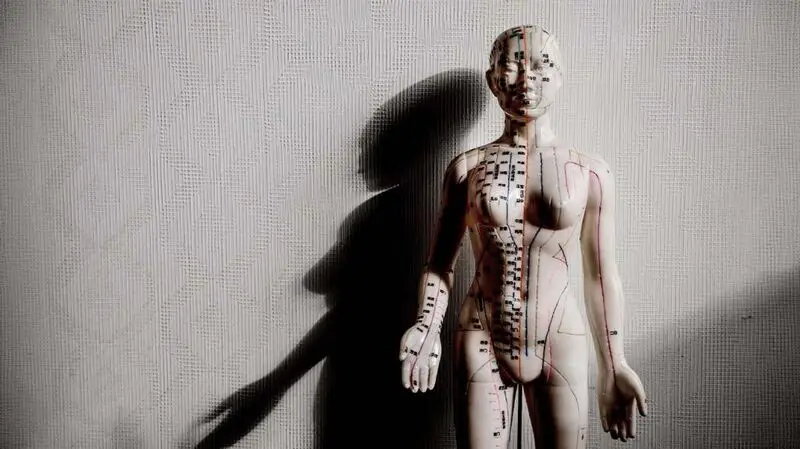
- Rheumatoid arthritis is a debilitating disease and can affect the body in many ways, including negatively impacting the cardiovascular system.
- Researchers based in Taiwan and China conducted a comparative study using data available on people with rheumatoid arthritis to see what sort of cardiovascular benefits acupuncture provided.
- Acupuncture involves treating pain by inserting needles strategically in the body.
- Their findings showed that people with rheumatoid arthritis who underwent acupuncture had a 43% reduced risk of having a stroke.
According to the
With rheumatoid arthritis being so prevalent, researchers are looking for ways to treat the disease as well as some of the problems associated with the disease, such as cardiovascular disease.
Researchers in China and Taiwan recently accessed medical records to see if there are any trends related to people who both have rheumatoid arthritis and acupuncture treatment. While the study is observational, they did find that this group of people was less likely to experience a stroke.
The study is available in BMJ Open.
While there are a number of treatments available for rheumatoid arthritis, such as JAK inhibitors and corticosteroids, there is not a cure for the disease. There are some things people can do to get some degree of pain relief, though, such as getting massages or having an acupuncture treatment.
Acupuncture is an alternative form of medicine that has origins in traditional Chinese medicine. According to the
In addition to helping provide pain relief from rheumatoid arthritis, acupuncture can also treat other types of pain, mood disorders, nausea, and fibromyalgia.
Acupuncture provides relief by causing changes in the central nervous system. The
Since inflammation associated with rheumatoid arthritis factors into people with the disease being at a higher risk for cardiovascular disease, including ischemic strokes, a treatment that interrupts the inflammation process, such as acupuncture, may provide more than standard pain benefits.
To that end, the researchers used data from Taiwan’s Registry for Catastrophic Illness Patients Database for their study to see if there was any correlation between rheumatoid arthritis participants who had acupuncture and outcomes in terms of strokes.
The authors included people in the study who were at least 18 years old, had no disruption in health insurance, and had no history of stroke before the beginning of the study window.
The participant sample included 23,226 people with rheumatoid arthritis who were diagnosed between 1997 and 2010. Of that group, 12,266 underwent an average of 10 acupuncture treatments over the course of about 3 years.
The participant pool was mainly female, and while the researchers included adults of all ages, the 40-59 female age bracket made up the bulk of the participants.
After gathering this information, they next looked at what treatments the participants underwent over the study period as well as any major health events.
By the end of the monitoring period, more than 900 participants experienced an ischemic stroke. Ischemic strokes cut off the blood supply to the brain.
Of those participants, 341 people from the acupuncture group had an ischemic stroke. In comparison to the group that didn’t undergo acupuncture treatments, this comes out to a 43% reduced stroke risk.
When the researchers took a closer look at the data to see whether different demographics or medical conditions could factor into these findings, they did not see any evidence of this.
“The advantage of lowering ischaemic stroke incidence through acupuncture therapy in rheumatoid arthritis patients was independent of sex, age, types of drugs used, and comorbidities,” write the authors.
The authors also note that “causality could not be proven directly through our study design … [but it] offers important ideas for more comprehensive research in the future.”
Dr. Rigved Tadwalkar, a board certified consultant cardiologist at Providence Saint John’s Health Center in Santa Monica, California, spoke with Medical News Today about the study.
Dr. Tadwalkar first touched on why rheumatoid arthritis can cause cardiovascular diseases such as strokes.
“Individuals with rheumatoid arthritis (RA) face an elevated risk of cardiovascular disease (CVD) due to several interconnected factors,” said Dr. Tadwalkar. “The chronic inflammation characteristic of RA extends beyond the joints, affecting blood vessels and promoting atherosclerosis.”
“This inflammatory process damages the vessel lining and promotes plaque formation, leading to narrowed arteries and an increased susceptibility to heart attacks and strokes,” Dr. Tadwalkar continued.
Dr. Tadwalkar found the study findings “intriguing.”
“We observe a potential association between acupuncture and a diminished risk of stroke in individuals managing rheumatoid arthritis,” commented Dr. Tadwalkar. “The study implies that acupuncture may play a significant role beyond conventional approaches, potentially influencing the overall health outcomes in this patient population.”
Dr. Tadwalkar said that more research is needed into the benefits of acupuncture and rheumatoid arthritis.
“While it is premature to draw definitive conclusions, these findings prompt further exploration into the integration of alternative therapies in comprehensive strategies for cardiovascular risk reduction in individuals with rheumatoid arthritis,” said Dr. Tadwalkar.
Dr. Cheng-Han Chen, a board certified interventional cardiologist and medical director of the Structural Heart Program at MemorialCare Saddleback Medical Center in Laguna Hills, California, also spoke with MNT.
Dr. Chen emphasized that this is an observational study and that more research is needed before the findings can be applied at a clinical level.
“These results warrant further study to investigate whether acupuncture may be beneficial for reducing stroke in a wider population,” said Dr. Chen.
“As with all observational studies, this study is not able to determine that acupuncture was causal to the reduction in stroke,” noted Dr. Chen. “In addition, it remains to be determined whether these findings are generalizable to a more ethnically diverse population.”





